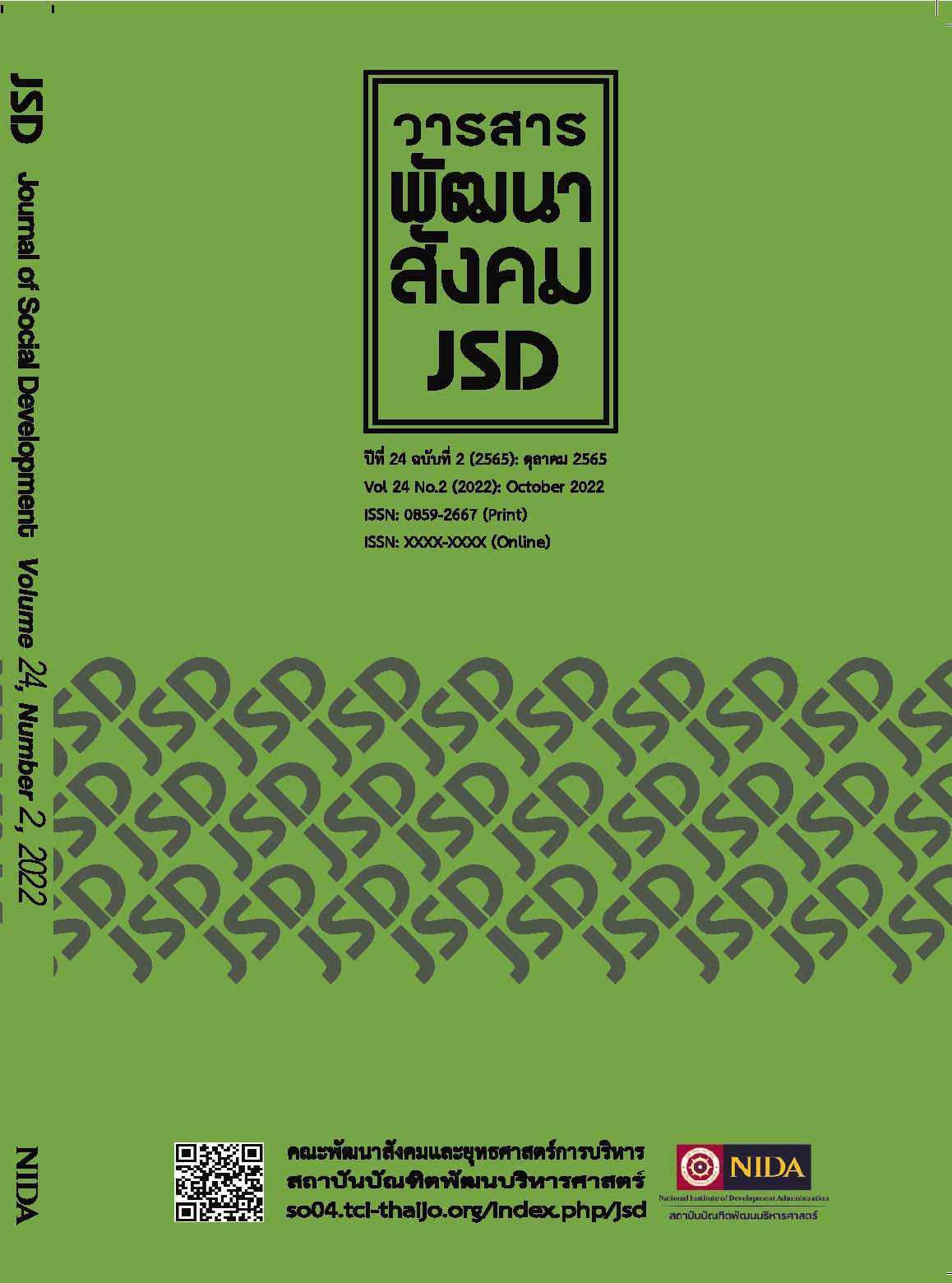Women at the Forefront of Social Development: An Analysis on the Roles of Gender, Acceptance, and Trends.
Main Article Content
Abstract
This paper aims to reflect upon a deepened analysis based on the roles of gender in the 21st century of World Development. A shifted in the paradigm of global
development, with countless of emerging movements and activism patterns towards “women empowering,” an intriguing consensus how roles of gender brought “equality” matters to the world as it has been trusted to help progress and develop. Reasons on both acceptance, and trends within the subject of “gender equality,” as it has been heavily discussed, led by both the world’s leaders together with their citizens’ to “optin” general concepts that person(s), regardless of their gender should be able to live comfortably, be treated fairly, thereby, developed the nations onto better directions. Concluded with options in development scenarios; “gender neutrality” as forefront
concept, suggested patterns of sustainable development may suit the needs of an overall “equality treatment” among global citizens moving forward.
Article Details

This work is licensed under a Creative Commons Attribution-NonCommercial-NoDerivatives 4.0 International License.
References
Abebe, J. O. (2015). The role of gender in enhancing the development agenda of any country. SSRN Electronic Journal. DOI:10.2139/ssrn.2847910
Berger, M. (2019, December 15). A guide to how gender-neutral language is developing Around the world. The Washington Post. Retrieved from https://www.washington post.com/world/2019/12/15/guide-how-gender-neutral-language-is-developing-around-world/
Carli, L. L. (1999). Gender, interpersonal power, and social influence. Journal of Social Issues, 55(1), 81-99. DOI: 10.1111/0022-4537.00106
Cornwall, A. (2007). Revisiting the ‘Gender agenda’. IDS Bulletin, 38(2), 69-78. DOI:10.1111/j.1759-5436.2007.tb00353.x
Dennis, S., & Zuckerman, E. (2006). Gender Guide to World Bank and IMF Policy-Based Lending. Gender Action. Retrieved from https://www.genderaction.org/images/GA%20Gender%20Guide%20to%20World%20Bank%20and%20IMF%20FINAL.pdf
Dugarova, E. (2018). Gender equality as an accelerator for achieving the Sustainable Development Goals. UN Women. New York.
Farré, L. (2013). The role of men in the economic and social development of women: Implications for gender equality. The World Bank Research Observer, 28(1), 22-51.
Folkman, J., & Zinger, J. (2020, December 30). Research: Women are better leaders
During a crisis. Retrieved from https://hbr.org/2020/12/research-women-are-better-leaders-during-a-crisis
Giuliano, P. (2017). Gender: A historical perspective. Retrieved from https://www.nber.org/papers/w23635.
Kaizer, F. A. & UN Women, (2021). Covid-19 and Women’s Rights Organizations: Bridging Response Gaps and Demanding a More Just Future. Policy Brief, (20).
Kaltenborn, M., Krajewski, M., & Kuhn, H. (2020). Sustainable Development Goals and Human Rights (p. 239). Springer Nature. Retrieved from https://library.oapen.org/bitstream/handle/20.500.12657/22942/1007219.pdf?sequence=1#page=106
Miller, C., & Razavi, S. (1995). From WID to GAD: Conceptual shifts in the women and development discourse (No. 1). UNRISD Occasional Paper. Retrieved from
Miller, S. L., Gregory, C., & Iovanni, L. (2005). One size fits all: gender-neutral approach to gender-specific problem: Contrasting batterer treatment programs for male and female offenders. Criminal Justice Policy Review, 16(3), 336-359.
Muyoyeta, L. (2007). Women, gender and development. Women for Change, Zambia and 80: 20 Educating and Acting for a Better World, with support from Development Cooperation Ireland and Concern.
Parpart, J. L., Connelly, M. P., & Barriteau, V. E. (2000). Theoretical Perspectives on Gender and Development. International Development Research Centre, Ottawa.
Razavi, S. (2012). World development report 2012: Gender equality and development- A commentary. Development and Change, 43(1). 423-437.
Sahaya, A., Amrit, A., Rao, M., Uma, G., & Vanishree, J. (2018). Block-2 Approaches to Gender and Development. Retrieved from http://egyankosh.ac.in/bitstream/123456789/6676/3/Unit-6.pdf
Todaro, M. P., & Smith, S. C. (2014). Economic Development (12th ed.). Prentice Hall.
Warrell, M. M. (2021). Women Rising: Internal Facilitators to Lead from the Top (Order No. 28316606). Available from ProQuest Dissertations & Theses Global. (2489547819). Retrieved from https://search.proquest.com/dissertations-theses/women-rising-
internal-facilitators-lead-top/docview/2489547819/se-2?accountid=44809
Young, G. (2016). Women, naturally better leaders for the 21st century. Transpersonal Leadership Series: White Paper Two. Retrieved from https://www.routledge.com/rsc/downloads/WP-TL2-2016_Transpersonal_Leadership_WP2_FINAL.pdf


